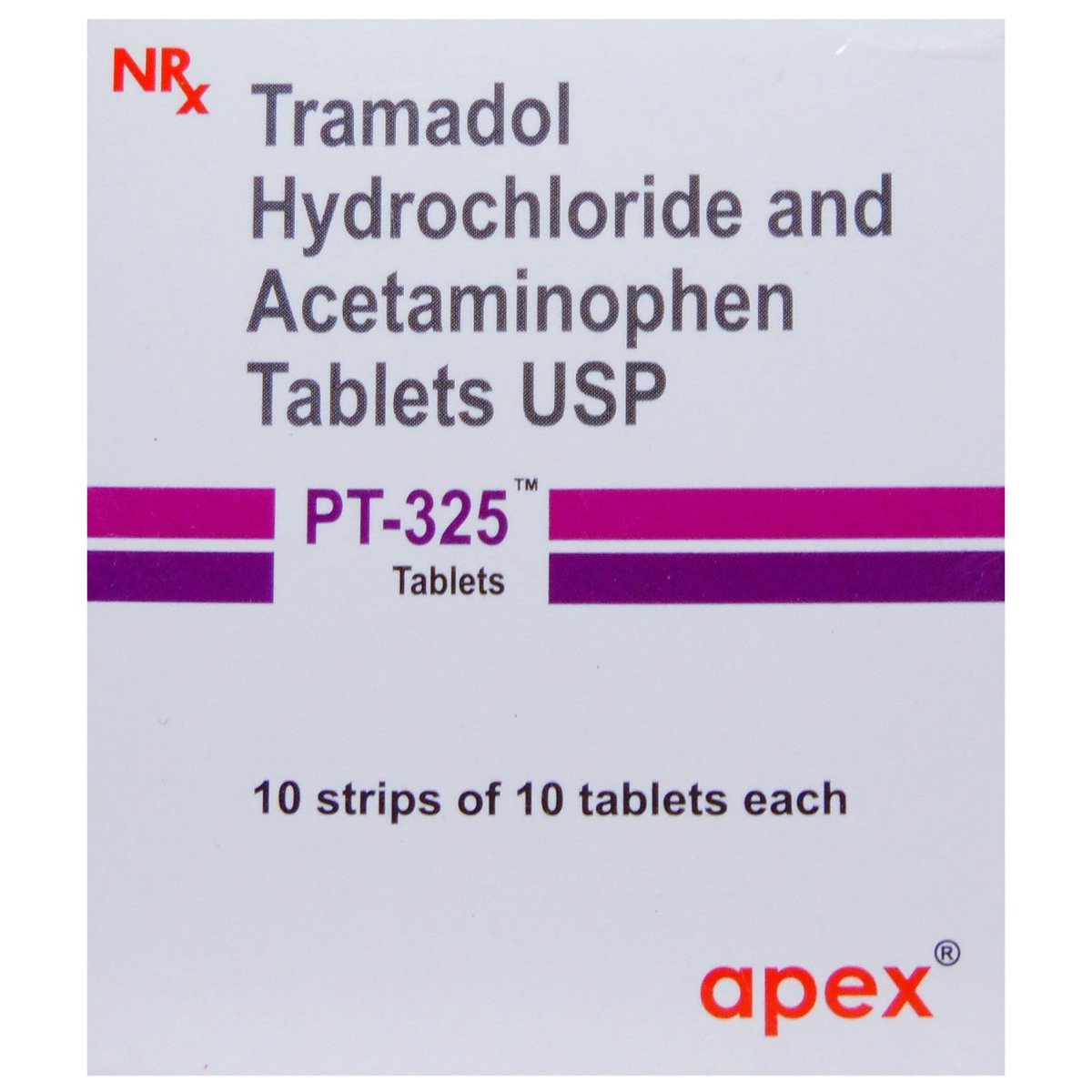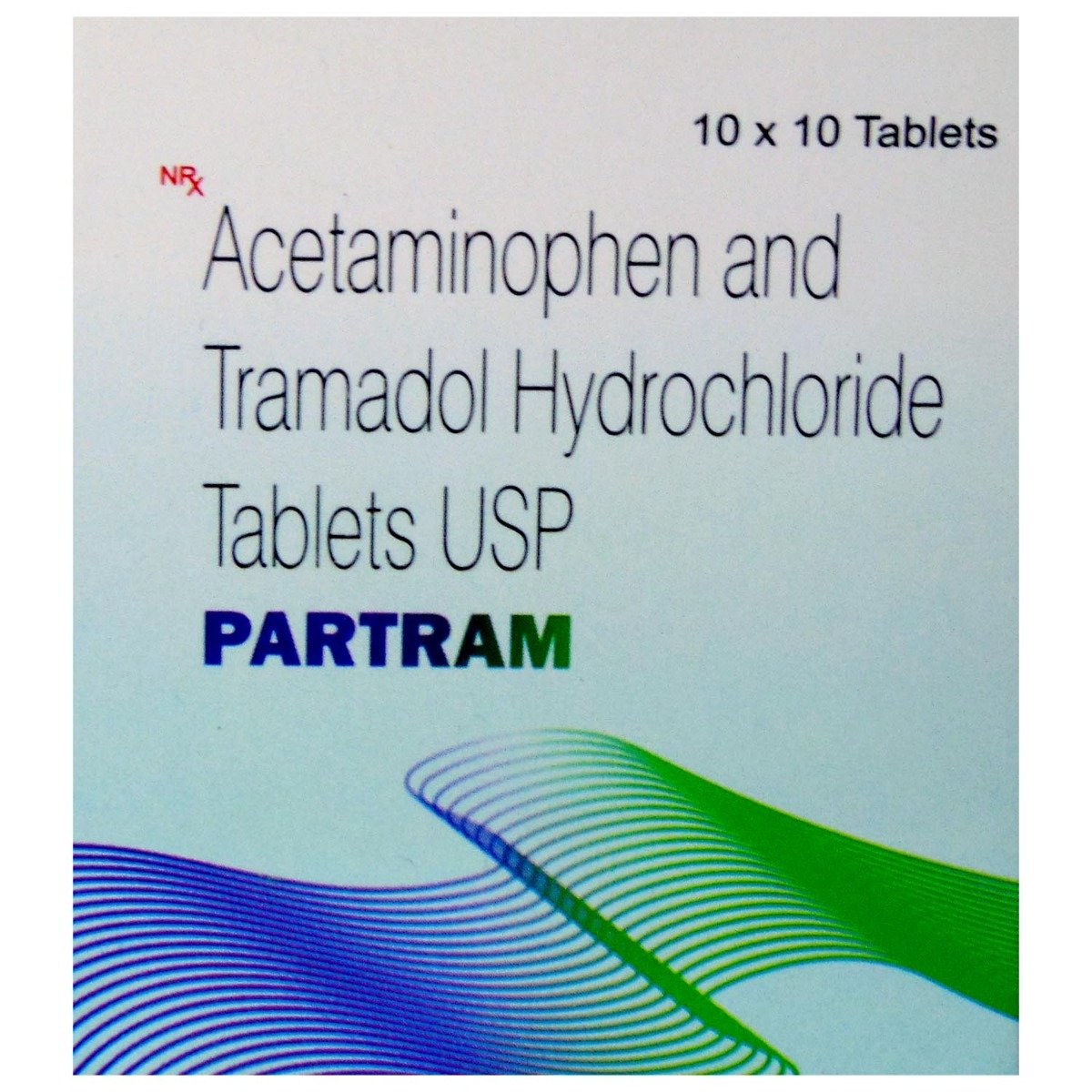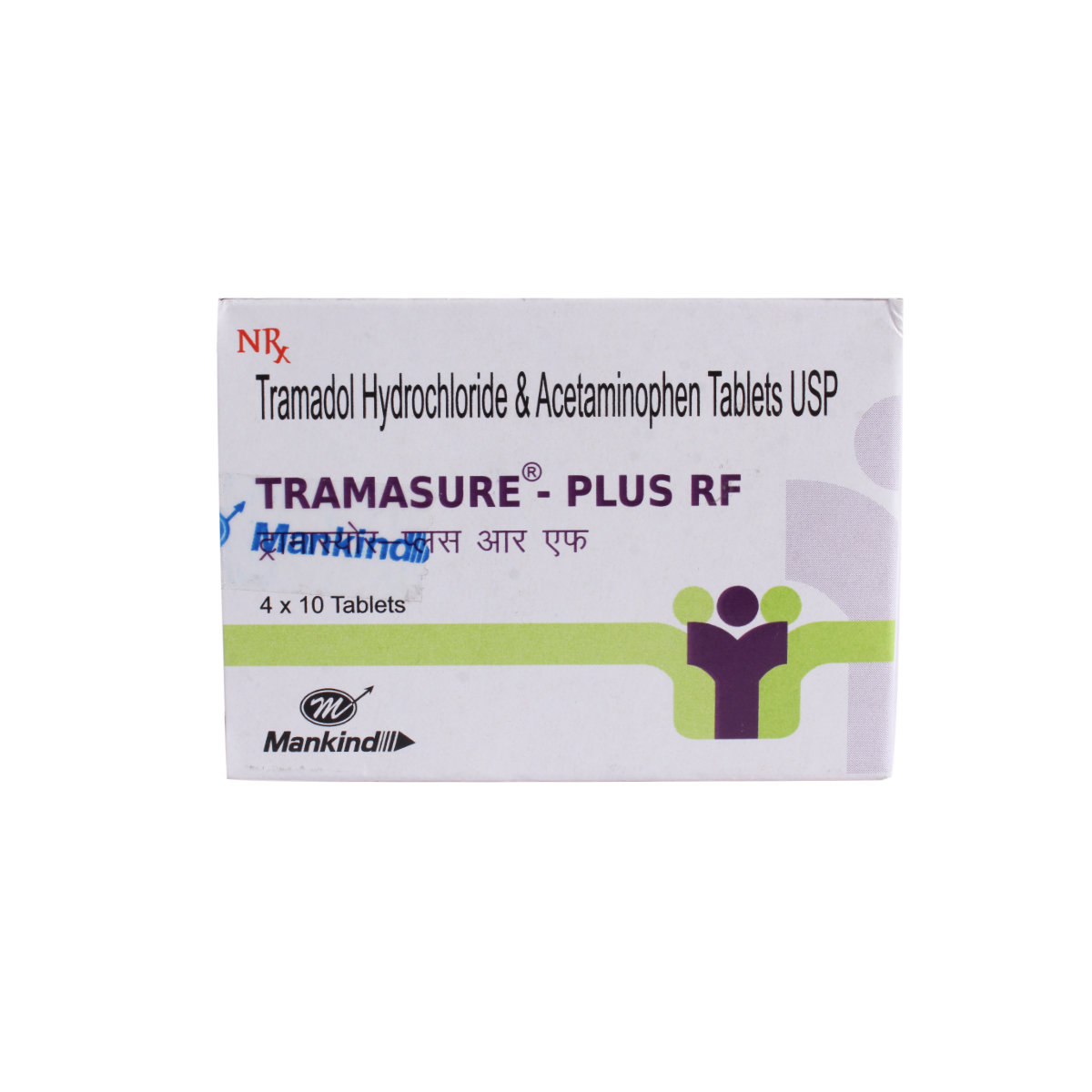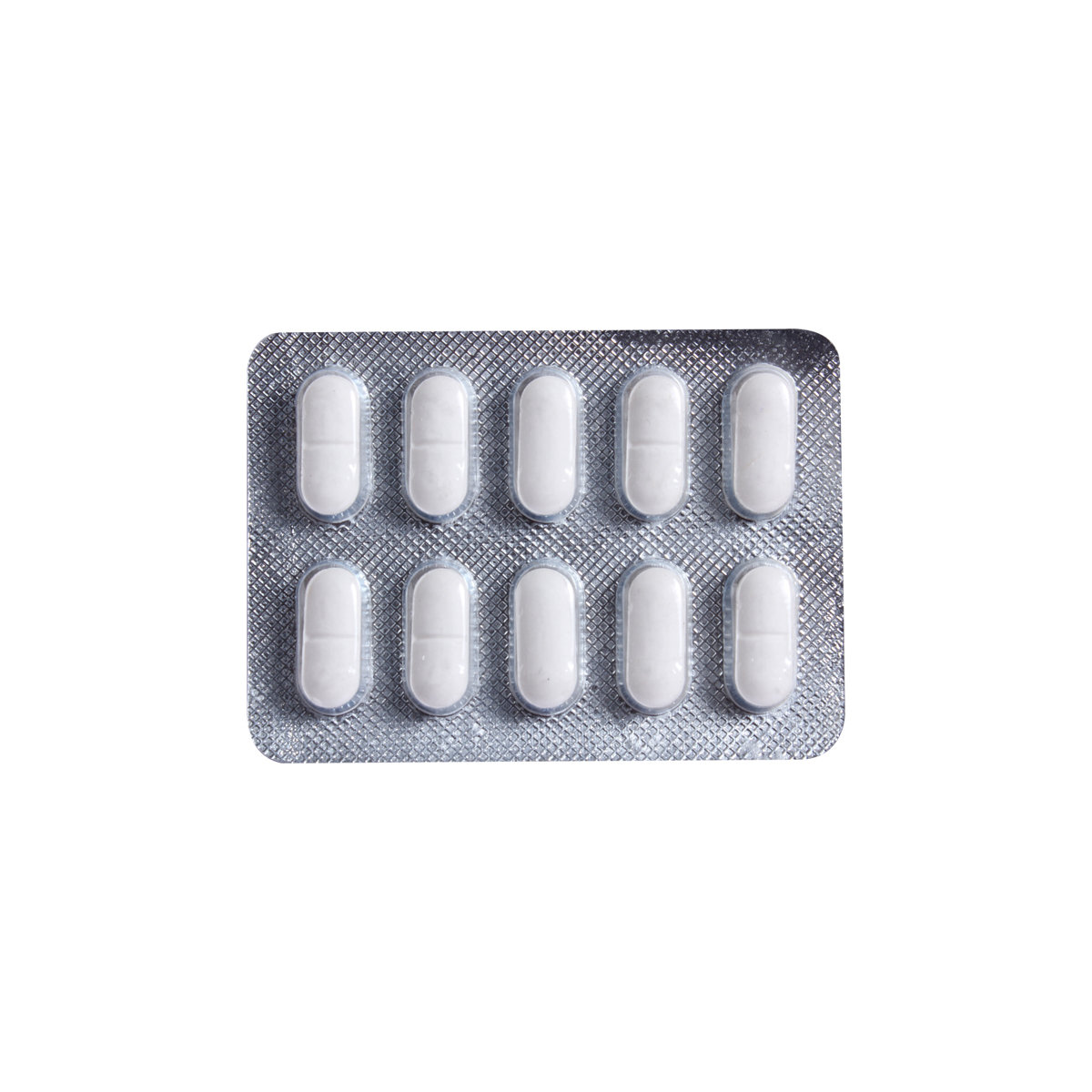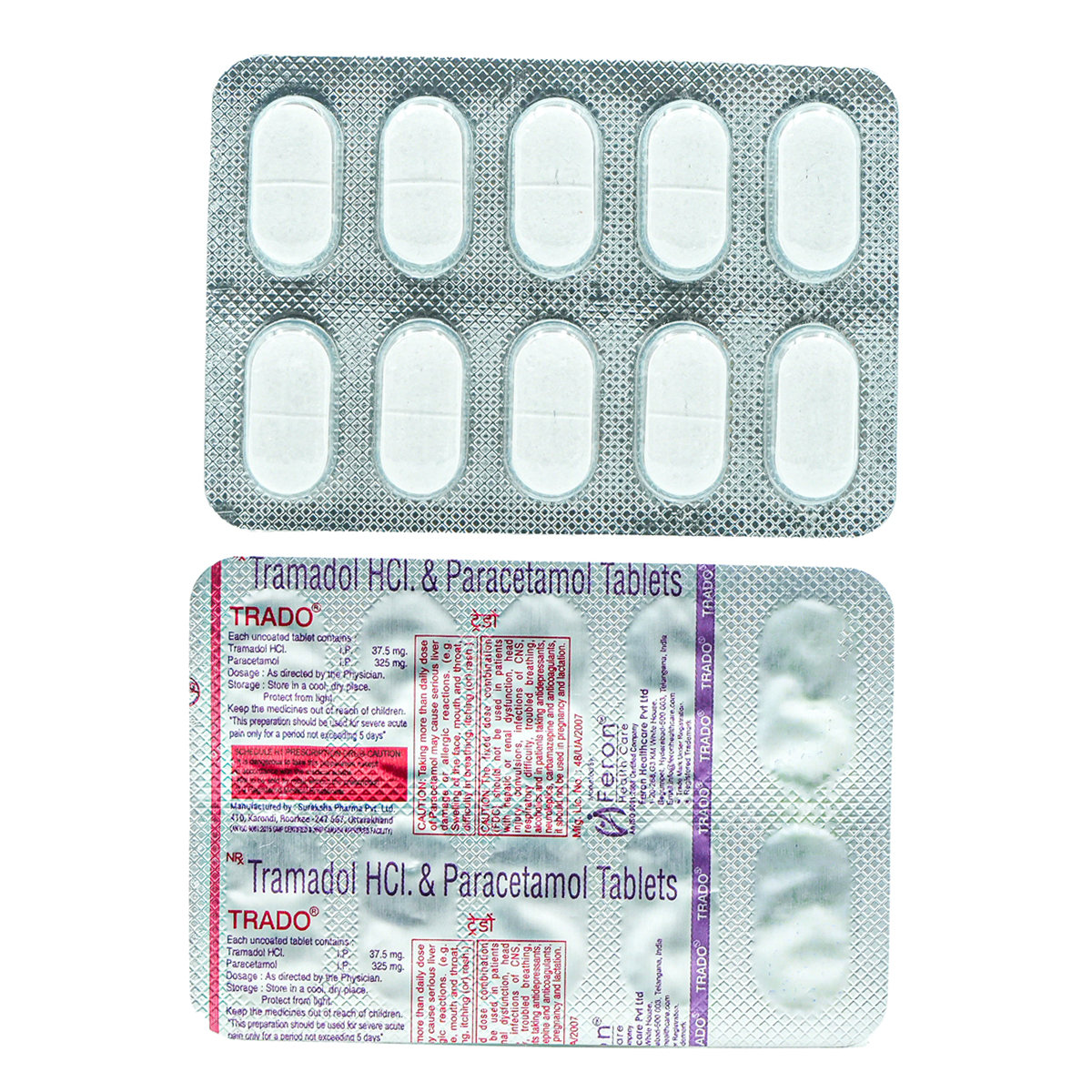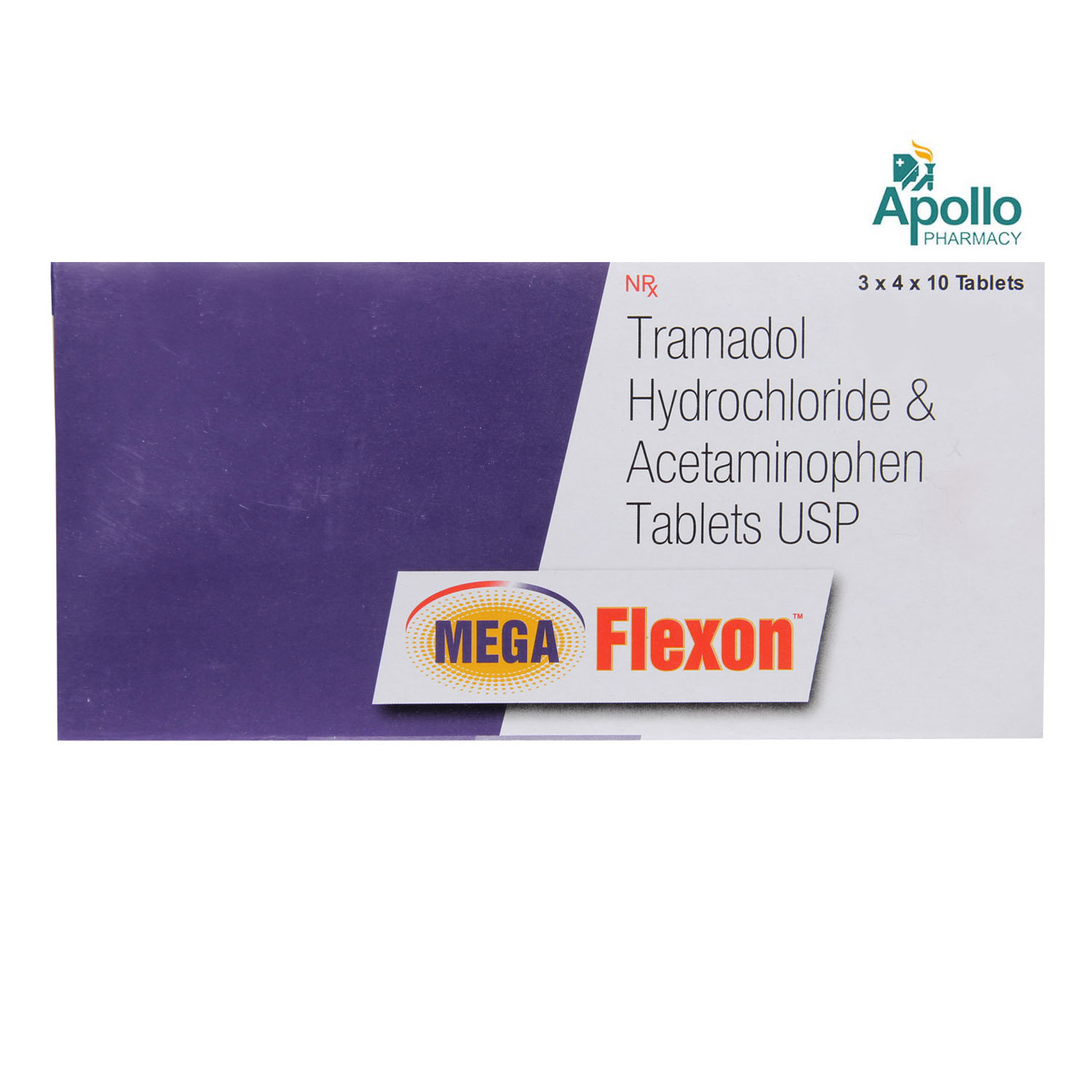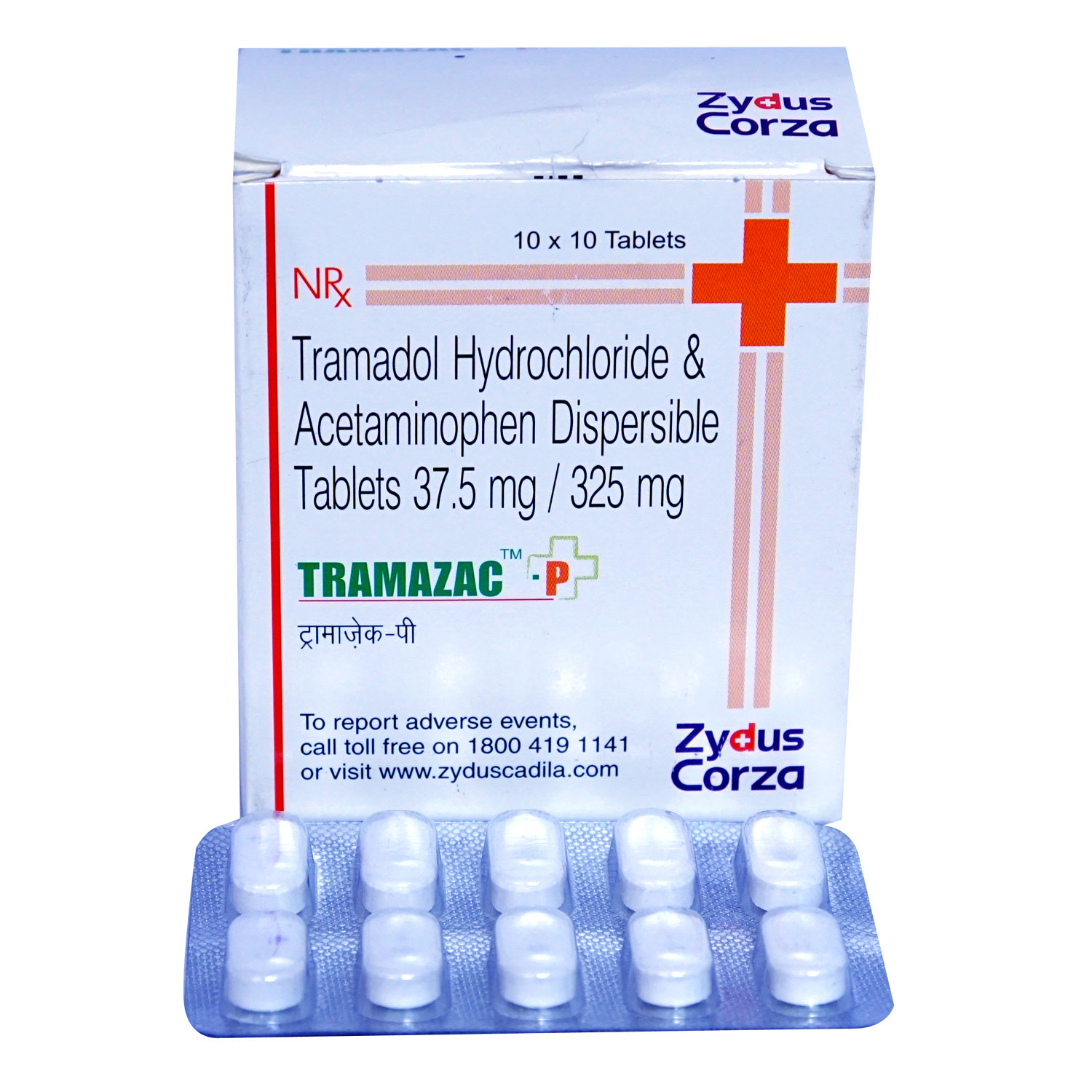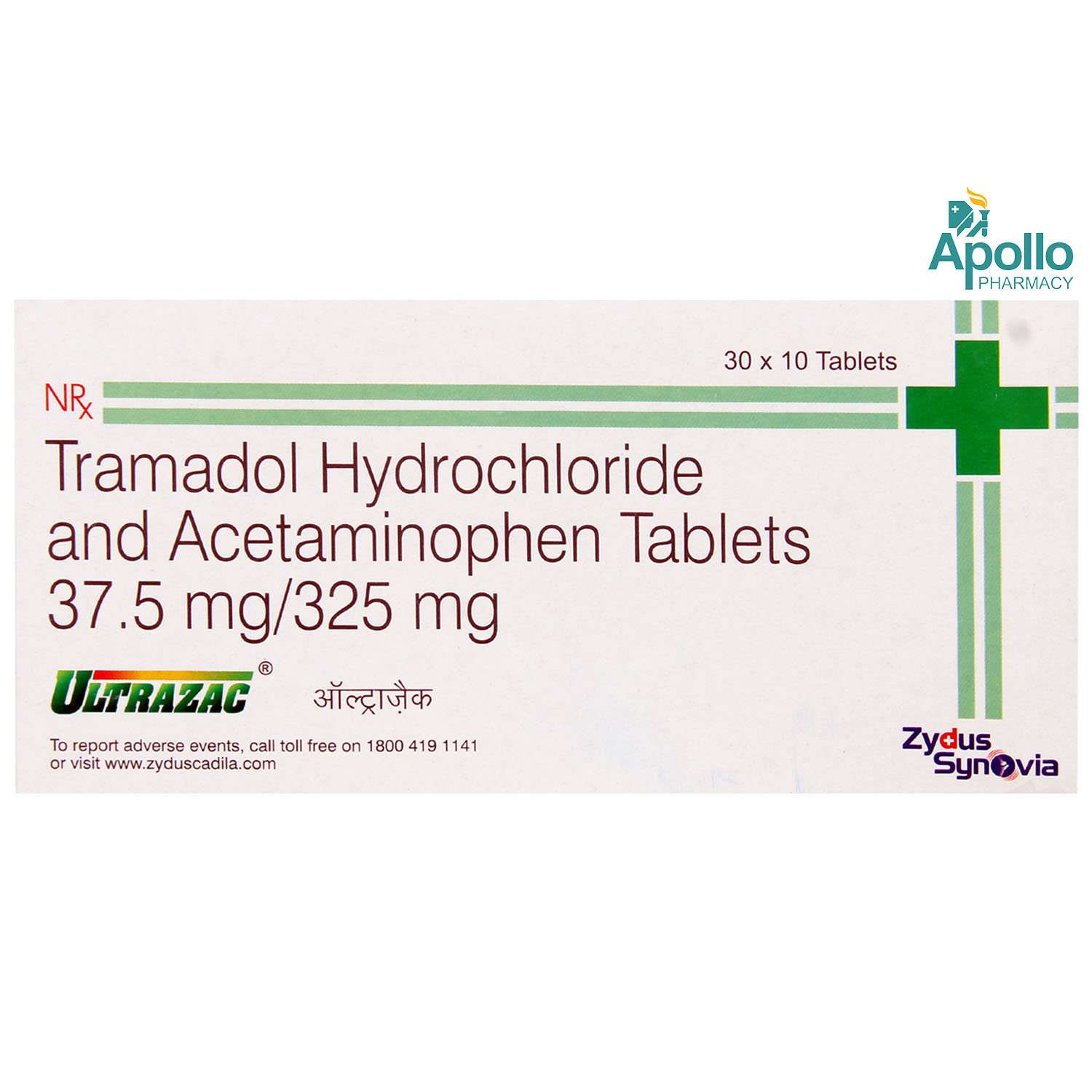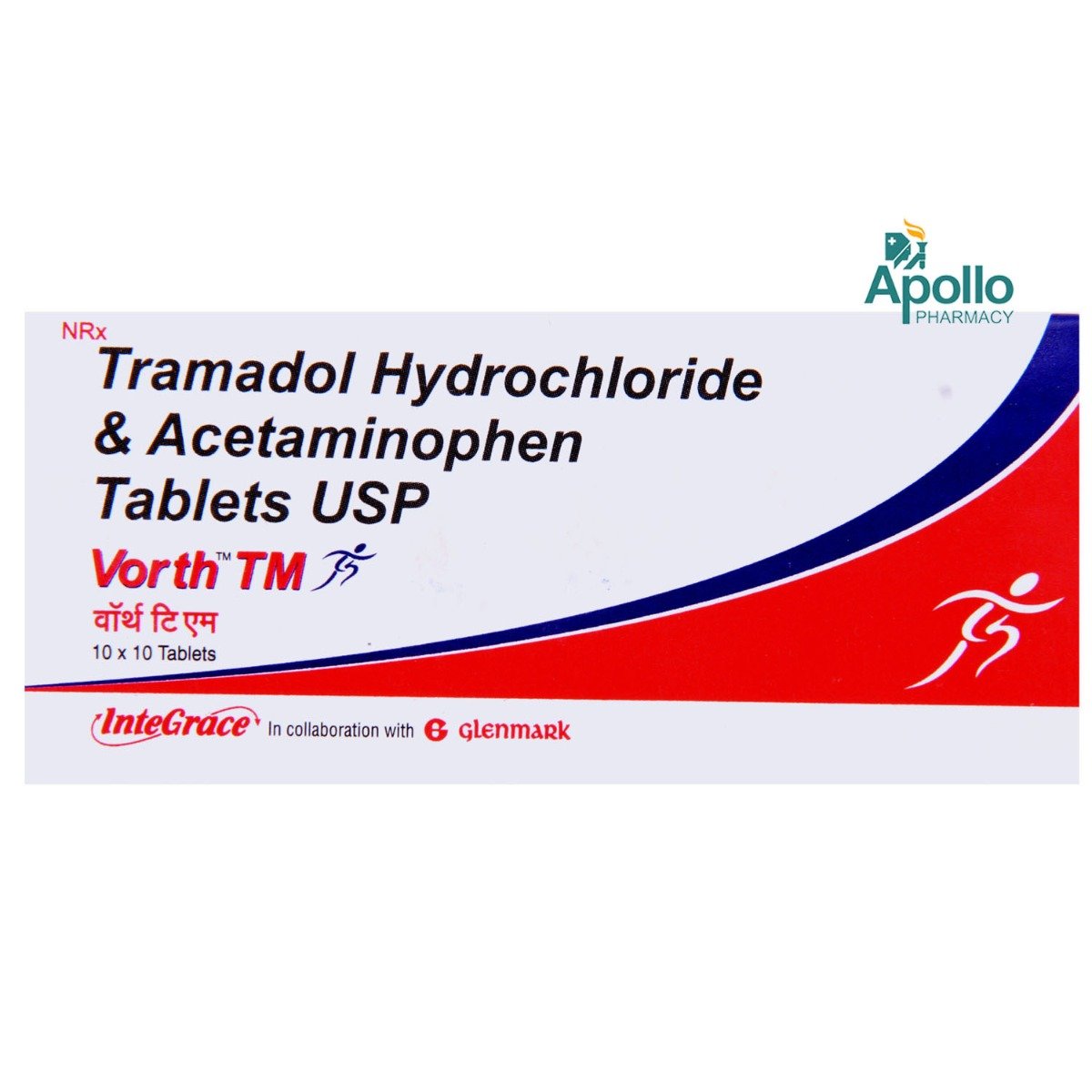Tralol-A Tablet 10's
MRP ₹149
(Inclusive of all Taxes)
₹22.4 Cashback (15%)
Provide Delivery Location
Online payment accepted
 Prescription drug
Prescription drugWhats That
Composition :
Manufacturer/Marketer :
Consume Type :
Return Policy :
About Tralol-A Tablet 10's
Tralol-A Tablet 10's belongs to a class of drugs called analgesics (pain killers) primarily used to treat moderate to severe pain. Pain is an unpleasant sensation caused by an injury or illness. Pain may be acute (short term) or chronic (long term). It can be general (overall body pains) or localized (pain in a specific area of the body).
Tralol-A Tablet 10's is a combination of two drugs, namely: Tramadol (opioid analgesic) and Acetaminophen (analgesic and antipyretic). Tramadol works by mimicking the action of endorphins (pain-reducing chemicals) in the brain and spinal cord. Thereby inhibits the transmission of pain signals from nerves to the brain. Also, it improves the effect of serotonin and noradrenaline (chemical messengers in the brain and spinal cord) and helps in relieving pain. Acetaminophen is an analgesic (relieves pain) and antipyretic (reduces fever) that works by inhibiting the production of certain chemical messengers in the brain known as prostaglandins that are responsible for pain and fever.
Take Tralol-A Tablet 10's as prescribed by your doctor. You are advised to take Tralol-A Tablet 10's for as long as your doctor has prescribed it for you based on your medical condition. In some cases, you may experience drowsiness, nausea, dizziness, headache, vomiting, dry mouth, constipation, excessive sweating, shaking, confusion or mood changes. Most of these side effects of Tralol-A Tablet 10's do not require medical attention and gradually resolve over time. However, if the side effects worsen or persist, please consult your doctor.
If you are allergic to Tralol-A Tablet 10's or any other medicines, please tell your doctor. Tralol-A Tablet 10's is not recommended for children below 12 years of age, as the safety and effectiveness were not established. Avoid taking Tralol-A Tablet 10's if you are pregnant as it may cause withdrawal symptoms in the newborn baby. Tralol-A Tablet 10's may be excreted in human milk. Please consult a doctor if you are breastfeeding. It is an offence to drive if Tralol-A Tablet 10's affects you. Therefore, avoid driving if you feel drowsy or dizzy after taking Tralol-A Tablet 10's. Avoid alcohol consumption with Tralol-A Tablet 10's as it may increase drowsiness.
Uses of Tralol-A Tablet 10's
Directions for Use
Key Benefits
Tralol-A Tablet 10's is a combination of two drugs: Tramadol and Acetaminophen to treat moderate to severe pain. Tramadol mimics the action of endorphins (pain-reducing chemicals) in the brain and spinal cord. Thereby inhibits the transmission of pain signals from nerves to brain. Also, it improves the effect of serotonin and noradrenaline (chemical messengers in the brain and spinal cord) and helps in relieving pain. Acetaminophen is an analgesic (relieves pain) and antipyretic (reduces fever) that inhibits the production of certain chemical messengers in the brain known as prostaglandins responsible for pain and fever.
Storage
- Inform your doctor about dizziness symptoms. They may adjust your medication regimen or prescribe additional medications to manage symptoms.
- Follow your doctor's instructions for taking medication, and take it at the same time every day to minimize dizziness.
- When standing up, do so slowly and carefully to avoid sudden dizziness.
- Avoid making sudden movements, such as turning or bending quickly, which can exacerbate dizziness.
- Drink plenty of water throughout the day to stay hydrated and help alleviate dizziness symptoms.
- If you're feeling dizzy, sit or lie down and rest until the dizziness passes.
- Track when dizziness occurs and any factors that may trigger it, and share this information with your doctor to help manage symptoms.
- Inform your doctor about the nausea and discuss possible alternatives to the medication or adjustments to the dosage.
- Divide your daily food intake into smaller, more frequent meals to reduce nausea.
- Opt for bland, easily digestible foods like crackers, toast, plain rice, bananas, and applesauce.
- Avoid certain foods that can trigger nausea, such as fatty, greasy, spicy, and smelly foods.
- Drink plenty of fluids, such as water, clear broth, or electrolyte-rich beverages like coconut water or sports drinks.
- Use ginger (tea, ale, or candies) to help relieve nausea.
- Get adequate rest and also avoid strenuous activities that can worsen nausea.
- Talk to your doctor about taking anti-nausea medication if your nausea is severe.
- Record when your nausea occurs, what triggers it, and what provides relief to help you identify patterns and manage your symptoms more effectively.
- Hydrate your body: Drink enough water to prevent dehydration and headaches.
- Calm Your Mind: Deep breathing and meditation can help you relax and relieve stress.
- Rest and Recharge: Sleep for 7-8 hours to reduce headache triggers.
- Take rest: lie down in a quiet, dark environment.
- Cold or warm compresses can help reduce tension.
- Stay Upright: Maintain good posture to keep symptoms from getting worse.
- To treat headaches naturally, try acupuncture or massage therapy.
- Over-the-counter pain relievers include acetaminophen and ibuprofen.
- Prescription Assistance: Speak with your doctor about more substantial drug alternatives.
- Severe Headaches: Seek emergency medical assistance for sudden, severe headaches.
- Frequent Headaches: If you get reoccurring headaches, consult your doctor.
- Headaches with Symptoms: Seek medical attention if your headaches include fever, disorientation, or weakness.
Drug Warnings
If you are allergic to Tralol-A Tablet 10's or any other medicines, please tell your doctor. Tralol-A Tablet 10's is not recommended for children below 12 years of age, as the safety and effectiveness were not established. Avoid taking Tralol-A Tablet 10's if you are pregnant as it may cause withdrawal symptoms in the newborn baby. Tralol-A Tablet 10's may be excreted in human milk. Please consult a doctor if you are breastfeeding. If you have fits, asthma, severe lung problems, drug dependence, liver or kidney problems, inform your doctor before taking Tralol-A Tablet 10's. It is an offence to drive if Tralol-A Tablet 10's affects you. Therefore, avoid driving if you feel drowsy or dizzy after taking Tralol-A Tablet 10's. Avoid alcohol consumption with Tralol-A Tablet 10's as it may increase drowsiness. Do not take Tralol-A Tablet 10's if you are taking pain relievers, sleeping pills, or taking medicines such as linezolid, phenelzine, selegiline, rasagiline, isocarboxazid, tranylcypromine and methylene blue injection in the past 14 days. Inform your doctor immediately if you experience any sleep-related breathing problems such as sleep apnoea (breathing stops and starts repeatedly) while taking Tralol-A Tablet 10's.
Drug-Drug Interactions
Drug-Drug Interactions
Login/Sign Up
Taking rasagiline with Tralol-A Tablet can increase the risk of serotonin syndrome (A condition in which a chemical called serotonin increase in your body).
How to manage the interaction:
Taking Tralol-A Tablet with Rasagiline is not recommended, as it can lead to an interaction, but can be taken if advised by your doctor. However, if you experience any symptoms like severe headache, blurred vision, confusion, seizures, chest pain, nausea or vomiting, sudden numbness or weakness (especially on one side of the body), speech difficulties, fever, sweating, lightheadedness, and fainting, contact your doctor immediately. Do not discontinue any medications without first consulting your doctor.
Combining Tranylcypromine with Tralol-A Tablet can increase the risk of serotonin syndrome (a condition in which a chemical called serotonin increase in your body).
How to manage the interaction:
Taking Tranylcypromine with Tralol-A Tablet is not recommended, but can be taken together if prescribed by a doctor. However, consult a doctor if you experience confusion, hallucination(seeing and hearing things that do not exist), fits, blood pressure alteration, increased heart rate, fever, excessive sweating, shivering or shaking, blurred vision, pain in the muscles or stiffness, incoordination, stomach cramps, nausea, vomiting, and diarrhea. Do not discontinue any medications without consulting your doctor.
Taking Safinamide with Tralol-A Tablet can increase the risk of serotonin syndrome (A condition in which a chemical called serotonin increase in your body).
How to manage the interaction:
Taking Safinamide with Tralol-A Tablet is not recommended as it can possibly result in an interaction, but can be taken together if prescribed by a doctor. However, consult a doctor if you experience confusion, hallucination(seeing and hearing things that do not exist), fits, blood pressure alteration, increased heart rate, fever, excessive sweating, shivering or shaking, blurred vision, pain in the muscles or stiffness, incoordination, stomach cramps, nausea, vomiting, and loose stools. Do not discontinue any medications without consulting your doctor.
Combining Phenelzine with Tralol-A Tablet can increase the risk of serotonin syndrome and seizures.
How to manage the interaction:
Taking Tralol-A Tablet with Phenelzine is not recommended, please consult your doctor before taking it.
Co-administration of Linezolid with Tralol-A Tablet can increase the risk of serotonin syndrome and seizures.
How to manage the interaction:
Taking Linezolid with Tralol-A Tablet is not recommended, consult a doctor before taking it. Consult a doctor if you experience confusion, hallucination, seizure, extreme changes in blood pressure, increased heart rate, fever, excessive sweating, shivering or shaking, blurred vision, muscle spasm or stiffness, tremor, incoordination, stomach cramp, nausea, vomiting, and diarrhea. Do not stop using any medications without talking to a doctor.
Co-administration of Tralol-A Tablet with Alvimopan can make the side effects worse or more dangerous.
How to manage the interaction:
Taking Alvimopan with Tralol-A Tablet is not recommended, please consult your doctor before taking it.
Co-administration of Ziprasidone with Tralol-A Tablet can increase the risk of irregular heart rhythm.
How to manage the interaction:
Taking Tralol-A Tablet with Ziprasidone together can possibly result in an interaction, but it can be taken if a doctor has advised it. However, consult a doctor immediately if you experience sudden dizziness, lightheadedness, fainting, shortness of breath, or heart palpitations. Do not discontinue any medications without consulting a doctor.
Co-administration of Tralol-A Tablet may decrease the excretion rate of Oxazepam which could result in a higher serum level.
How to manage the interaction:
Although there is a possible interaction between Oxazepam and Tralol-A Tablet, you can take these medicines together if prescribed by a doctor. Do not stop using any medications without a doctor's advice.
Co-administration of ketamine and Tralol-A Tablet may decrease the effectiveness of Ketamine which could result in a higher blood level.
How to manage the interaction:
Although taking Ketamine and Tralol-A Tablet together can evidently cause an interaction, it can be taken if a doctor has suggested it. If you're feeling very sleepy or having trouble breathing, it's important to contact your doctor right away. Do not stop using any medications without a doctor's advice.
Co-administration of Teriflunomide with Tralol-A Tablet may increase the risk or severity of Liver problems.
How to manage the interaction:
Taking Tralol-A Tablet with Teriflunomide together can possibly result in an interaction, but it can be taken if a doctor has advised it. Do not discontinue any medications without consulting a doctor.
Drug-Food Interactions
Drug-Food Interactions
Login/Sign Up
Diet & Lifestyle Advise
- Do regular exercises such as swimming or walking.
- Drink plenty of water while taking Tralol-A Tablet 10's to avoid dry mouth.
- Maintain a fibre rich diet and eat plenty of fresh fruits and vegetables to avoid constipation while taking Tralol-A Tablet 10's.
- Avoid consumption of alcohol and quit smoking.
Side Effects of Tralol-A Tablet 10's
- Drowsiness
- Nausea
- Dizziness
- Headache
- Vomiting
- Dry mouth
- Constipation
- Excessive sweating
- Shaking
- Confusion
- Mood changes
Habit Forming
Therapeutic Class
All Substitutes & Brand Comparisons
RX
Not for online salePT 325 TABLET 10'S
Apex Laboratories Pvt Ltd
₹69
(₹6.21 per unit)
58% CHEAPERRX
Not for online salePARTRAM TABLET 10'S
Douglas Pharmaceuticals
₹74
(₹6.66 per unit)
55% CHEAPERRX
Not for online saleTramasure-Plus Rf Tablet 10's
₹79
(₹7.11 per unit)
52% CHEAPER
Author Details
We provide you with authentic, trustworthy and relevant information
Drug-Diseases Interactions
Drug-Diseases Interactions
Login/Sign Up
FAQs
Drug-Drug Interactions Checker List
- CARBAMAZEPINE
- PREGABALIN
- PENTAZOCIN
- BUPRENORPHINE
- MORPHINE
- CODEINE
- BACLOFEN
- WARFARIN
- PHENPROCOUMON
- ONDANSETRON
- METOCLOPRAMIDE
- DOMPERIDONE
- CHOLESTYRAMINE
- ZOLPIDEM
- CELECOXIB
- DULOXETINE
- ESCITALOPRAM
- ALPRAZOLAM
- NALBUPHINE
Special Advise
- Patients with severe liver or kidney insufficiency should avoid taking Tralol-A Tablet 10's.
- Do not give Tralol-A Tablet 10's to others. Use Tralol-A Tablet 10's only when prescribed by a doctor and avoid frequent or high doses as it may cause addiction.
- Please do not stop taking Tralol-A Tablet 10's suddenly as it may cause withdrawal symptoms such as difficulty in sleeping, anxiety, nervousness, shaking, stomach or bowel disorders or make you overactive. Therefore, take Tralol-A Tablet 10's for as long as your doctor has prescribed it.
Disease/Condition Glossary
Pain is an unpleasant sensation caused by an injury or illness. Pain may be acute (short term) or chronic (long term). It can be general (overall body pains) or localized (pain in a specific area of the body). Pain is highly subjective as some people have a high tolerance for pain while others have a low tolerance. Although pain is inconvenient and unpleasant, it hints about causes when something is wrong in the body. Pain may be caused due to cramps, headache, bone fractures, stomach pain, arthritis (swelling of one or more joints), muscle strain or overuse, cuts, flu, irritable bowel syndrome (an intestinal disorder causing stomach pain, diarrhoea or constipation) and fibromyalgia (muscle pain with stiffness and tenderness).

Have a query?
Alcohol
Safe if prescribed
Avoid consumption of alcohol with Tralol-A Tablet 10's as it may cause drowsiness.
Pregnancy
Consult your doctor
Tralol-A Tablet 10's is not recommended for pregnant women as it may cause withdrawal symptoms in the newborn baby. However, please consult your doctor if you are pregnant.
Breast Feeding
Consult your doctor
Tralol-A Tablet 10's may be excreted in breast milk and cause adverse effects in the baby. However, please consult a doctor if you are breastfeeding.
Driving
Safe if prescribed
Tralol-A Tablet 10's may cause dizziness or drowsiness in some people. It is an offence to drive if Tralol-A Tablet 10's affects you. Therefore, avoid driving if you feel drowsy or dizzy after taking Tralol-A Tablet 10's.
Liver
Consult your doctor
Take Tralol-A Tablet 10's with caution, especially if you have a history of Liver diseases/conditions. The dose may be adjusted by your doctor as required. Avoid taking Tralol-A Tablet 10's if you have severe liver insufficiency.
Kidney
Consult your doctor
Take Tralol-A Tablet 10's with caution, especially if you have a history of Kidney diseases/conditions. The dose may be adjusted by your doctor as required. Avoid taking Tralol-A Tablet 10's if you have severe kidney insufficiency.
Children
Safe if prescribed
Tralol-A Tablet 10's is not recommended for children below 12 years of age, as the safety and effectiveness were not established.




